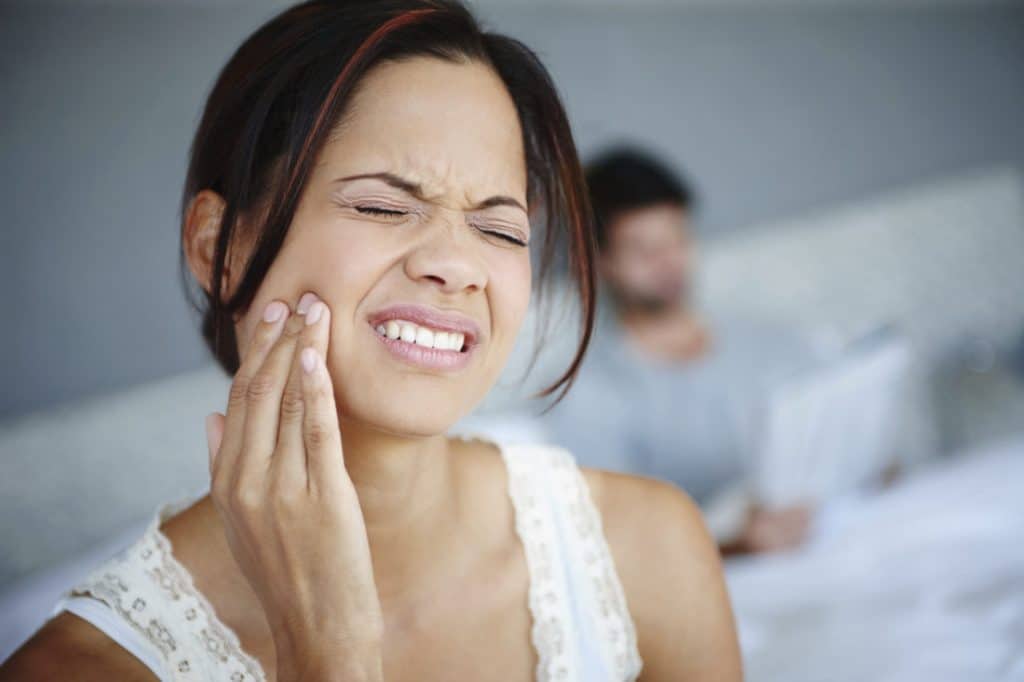It is well known that stress can wreak havoc on our bodies, but it also stresses out our dental health.
Heightened stress—like living through a historic pandemic like the coronavirus (COVID-19)—weakens our immune system and can also disrupt our normal cleaning habits.
“We had a patient come in missing a front tooth. She had a root canal as a child and later had a crown to strengthen the tooth,” says Austin Dentist. “Without warning, it broke at the gumline, leaving a gaping hole. We see this type of sudden worsening of preexisting conditions a lot when people are under tremendous stress.”
At a time when Texas dentists are prohibited, under the Governor’s orders, from seeing patients for elective or non-emergency procedures at least until April 21, think about the ways stress can hurt your oral health and let those possibilities serve as your reason to carry on with good dental habits.
“Stress can affect your oral health in a number of ways,” says Dr. Nguyen. “This is not the time to relax your regular dental habits like brushing twice a day and flossing. Remember to drink plenty of water, too. The water will rinse your teeth between brushings and also helps keep you healthy during flu season.”
TRU Dentistry Austin welcomes emergency patients any time of day or night, but some stress-related oral issues might not qualify as an emergency during the current COVID-19 precautions.
Here are some things you can do at home to relieve dental symptoms in the meantime:
- Bleeding gums/gum disease—A weakened immune system can leave your gums more vulnerable to harmful bacteria and gum disease, causing tooth decay, bad breath, and bleeding gums. Gum disease can also further weaken your body’s immune system and allow the spread of harmful bacteria.
- What to do: Use warm salt water rinses to help alleviate symptoms. Once the Governor’s orders are lifted and dental offices open again, schedule an appointment as soon as possible for evaluation, cleaning, and possible treatment with antibiotics.
- Pain/tooth decay—You may find, like Dr. Nguyen’s patient, that pre-existing dental issues worsen during times of stress.
-
- What to do: Tooth pain is one symptom that under normal conditions Dr. Nguyen advises a visit to the dentist right away. “You could have a cavity, gum disease, chipped enamel, or something else that’s only going to get worse and get more expensive the longer you wait.” Until you can get to your dentist, try the rinses noted in this article.
- Canker sores—These small spots with a white or grayish base and red borders can be so painful. The jury is out on their exact cause, but they seem to crop up during times of high stress, perhaps as a defense against germs. If your immune system is weakened by stress, you may find yourself suffering more canker sores.
- What to do: Use warm saltwater rinses, skip spicy and acidic foods, try adding vitamins B and C to your supplements, avoid smoking and alcohol, and apply over-the-counter numbing medication directly to the sore. If canker sores are a frequent problem, consult your dentist.
- Jaw issues—“Bruxism” (grinding or clenching teeth) can be caused by jaw misalignment and sleep disorders, but it can also be brought on by stress. Worse, you may be grinding and clenching—and causing damage—without even realizing it. Look for tongue indentations, flat-appearing tips of the teeth, or tooth enamel that looks thin or worn off.
- What to do: Massage your jaw (washing hands before and after), avoid hard foods and chewing ice, and try to be aware of/keep your jaw loose throughout the day. As soon as allowable, see your dentist because they can create a properly fitted night guard, prescribe anti-inflammatories, and evaluate damage caused by clenching and grinding.
- Dry mouth—stress can lead to dry mouth. Saliva has many oral health benefits, including washing away food particles from your teeth and gums, so a lack of saliva can set you up for a host of dental problems.
- What to do: Sip water frequently, chew sugar-free gum or suck sugar-free mints, limit caffeine, avoid tobacco use, breathe through your nose, use a humidifier to add moisture to the air, and try a mouthwash designed for dry mouth. If dry mouth does not subside once the virus threat is gone, consult your dentist.
- Nail-biting—Worn tooth enamel is common among nail-biters, but here’s something else to think about, especially having witnessed the ravages of the coronavirus: when you bite your nails, you’re transferring untold numbers and types of germs to your mouth. You can also spread warts from your hands to your mouth.
- What to do: Keep your hands out of your mouth! “We know it’s not that simple,” says Dr. Nguyen. “I really sympathize. But look for ways to break the cycle by wearing gloves, using a bitter coating, or even wearing a night guard during the day so you can’t chew on your nails.”
- Burning mouth syndrome—Stress can also cause burning mouth syndrome, which causes a burning, scalding, or tingling feeling in the mouth. It can make it painful to eat and drink, to practice proper oral care, and can damage your gums and teeth. More common in women, smoking and drinking can also contribute.
- What to do: Suck on small ice chips and sip water throughout the day, avoid spicy and acidic foods, try a different toothpaste, dissolve baking soda in warm water and rinse your mouth to neutralize acids. When allowed, consult your dentist to identify any gum or dental issues the burning mouth may be creating and have them treated.
All of our routines are turned up-side down right now, but maintaining our daily routines of brushing and flossing can actually help reduce stress levels—accomplishing even small tasks can give you a sense of accomplishment when you’re feeling overwhelmed.
TRU Dentistry Austin welcomes emergencies. Call 737-203-8538 at any time of day.
